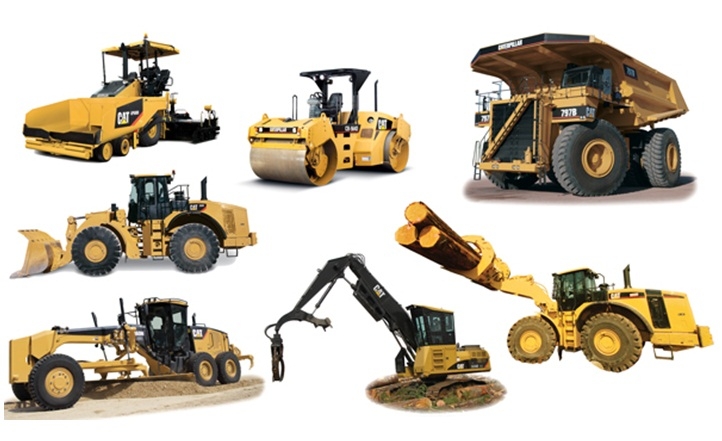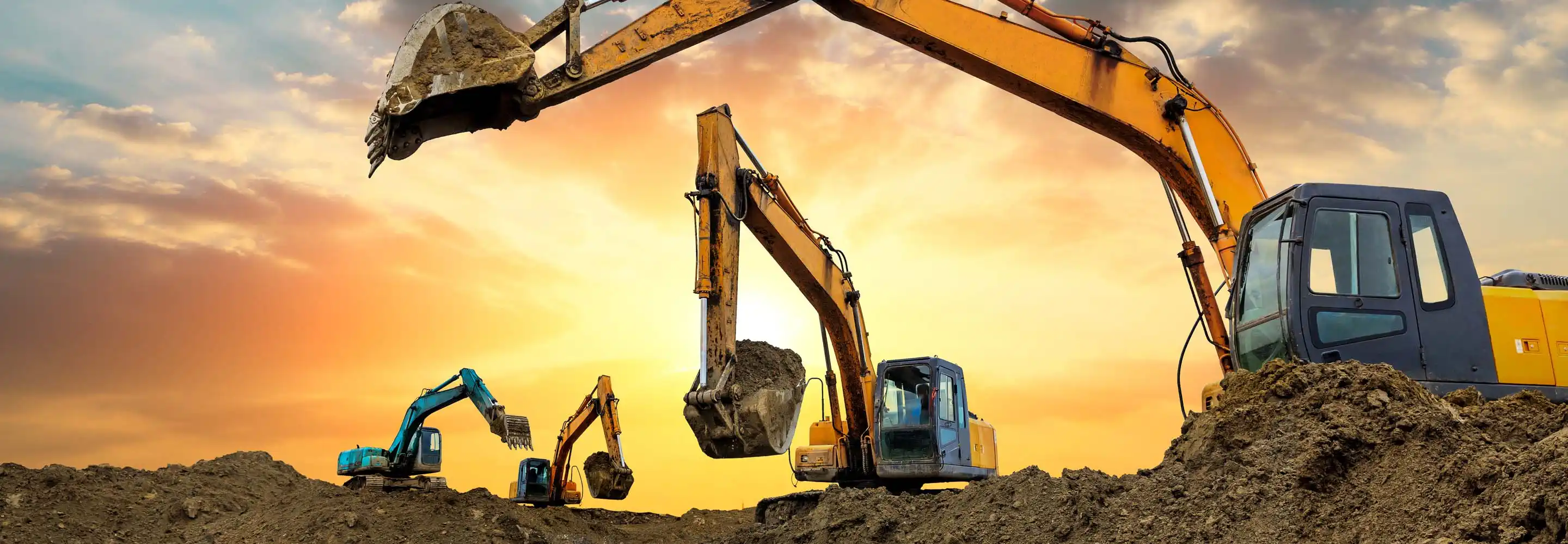Equipment Rental Company in Tuscaloosa, AL: Your Relied On Source for Equipment
Equipment Rental Company in Tuscaloosa, AL: Your Relied On Source for Equipment
Blog Article
Exploring the Financial Perks of Leasing Building And Construction Tools Contrasted to Having It Long-Term
The decision between renting out and owning building equipment is essential for monetary administration in the industry. Renting deals prompt expense financial savings and functional flexibility, enabling business to assign sources extra effectively. In contrast, ownership includes considerable lasting economic dedications, consisting of upkeep and depreciation. As contractors weigh these choices, the influence on cash money circulation, job timelines, and innovation access comes to be significantly considerable. Recognizing these subtleties is crucial, particularly when considering just how they straighten with specific task demands and financial techniques. What factors should be focused on to ensure optimum decision-making in this complex landscape?

Price Contrast: Leasing Vs. Possessing
When assessing the monetary ramifications of renting versus having construction equipment, an extensive expense contrast is vital for making informed choices. The choice between owning and renting out can considerably impact a business's bottom line, and understanding the associated costs is essential.
Renting building tools generally includes reduced ahead of time expenses, allowing services to allocate resources to various other operational requirements. Rental prices can gather over time, possibly surpassing the cost of possession if devices is required for an extensive duration.
Alternatively, having construction tools needs a significant preliminary investment, in addition to recurring costs such as insurance, funding, and depreciation. While ownership can bring about long-lasting financial savings, it likewise binds capital and may not provide the very same level of flexibility as leasing. In addition, having equipment necessitates a dedication to its usage, which may not always align with job needs.
Eventually, the decision to lease or own needs to be based on an extensive analysis of details project needs, monetary ability, and lasting tactical goals.

Upkeep Expenses and Obligations
The choice between renting and possessing building and construction devices not only entails monetary factors to consider but likewise encompasses ongoing maintenance expenditures and responsibilities. Having equipment requires a considerable dedication to its upkeep, which consists of routine evaluations, fixings, and prospective upgrades. These obligations can quickly collect, resulting in unanticipated costs that can strain a budget.
On the other hand, when renting out equipment, upkeep is usually the obligation of the rental company. This setup enables contractors to prevent the economic problem connected with deterioration, along with the logistical obstacles of scheduling fixings. Rental contracts usually include arrangements for maintenance, suggesting that service providers can concentrate on completing projects instead of stressing over devices condition.
Furthermore, the diverse series of tools offered for lease enables firms to choose the current designs with innovative innovation, which can improve performance and efficiency - scissor lift rental in Tuscaloosa, AL. By choosing services, organizations can stay clear of the lasting responsibility of devices depreciation and the linked upkeep frustrations. Inevitably, reviewing maintenance costs and responsibilities is critical for making an informed decision regarding whether to own or rent construction equipment, significantly affecting total job costs and operational performance

Devaluation Effect on Ownership

A substantial variable to take into consideration in the decision to have building equipment is the effect of devaluation on general possession expenses. Depreciation stands for the decline in value of the devices in time, affected by aspects such as usage, wear and tear, and innovations in modern technology. As devices ages, its market worth lessens, which can dramatically affect the proprietor's financial placement when it comes time to trade the tools or sell.
For building and construction companies, this devaluation can equate to considerable losses if the equipment is not utilized to its max possibility or if it lapses. Proprietors need to account for devaluation in their monetary projections, which can cause greater total expenses compared to renting. Additionally, the tax ramifications of devaluation can be complicated; while it may give some tax benefits, these are commonly offset by the fact of lowered resale value.
Eventually, the worry of depreciation stresses the value of understanding the lasting economic dedication associated with possessing construction equipment. Business have to carefully examine just how often they will certainly make use of the devices and the prospective economic influence of devaluation to make an informed choice about ownership versus renting.
Monetary Flexibility of Renting
Leasing building and construction devices offers substantial financial adaptability, enabling companies to assign sources more successfully. This flexibility is especially critical in a sector characterized by changing project needs and varying work. By opting to rent out, businesses can prevent the substantial funding investment required for dingo backhoe purchasing equipment, preserving money circulation for various other operational needs.
Furthermore, renting equipment allows companies to tailor their devices options to particular project demands without the long-lasting dedication associated with ownership. This suggests that businesses can conveniently scale their equipment supply up or down based upon awaited and present project requirements. As a result, this versatility decreases the threat of over-investment in machinery that might come to be underutilized or outdated gradually.
Another economic advantage of leasing is the potential for tax advantages. Rental settlements are typically thought about operating expenditures, enabling immediate tax deductions, unlike depreciation on owned equipment, which is topped numerous years. scissor lift rental in Tuscaloosa, AL. This immediate expenditure recognition can better enhance a business's money setting
Long-Term Project Considerations
When reviewing get more the long-lasting requirements of a building business, the decision between owning and leasing equipment becomes much more intricate. For tasks with extensive timelines, purchasing equipment might seem advantageous due to the capacity for reduced overall costs.
Additionally, technical developments pose a significant consideration. The construction market is developing rapidly, with brand-new tools offering improved performance and safety attributes. Renting out allows business to access the most recent modern technology without committing to the high upfront prices connected with purchasing. This adaptability is particularly advantageous for organizations that deal with diverse tasks requiring different types of devices.
In addition, economic stability plays a critical function. Owning devices commonly entails significant capital expense and devaluation issues, while leasing enables more predictable budgeting and money flow. Inevitably, the option between possessing and leasing needs to be aligned with the calculated purposes of the building and construction business, thinking about both anticipated and present task demands.
Conclusion
In final thought, leasing building tools provides significant financial benefits over long-lasting possession. Ultimately, the choice to rent out rather than own aligns with the dynamic nature of building and construction tasks, enabling for versatility and accessibility to the most current devices without the monetary burdens linked with ownership.
As devices ages, its market worth lessens, which can considerably impact the proprietor's monetary placement when it next comes time to trade the equipment or market.
Renting building devices provides significant monetary adaptability, enabling business to allot resources extra efficiently.Additionally, renting tools enables companies to customize their equipment options to certain job demands without the long-term commitment associated with ownership.In verdict, leasing building tools provides considerable economic advantages over long-lasting ownership. Ultimately, the decision to rent instead than own aligns with the vibrant nature of building and construction jobs, enabling for adaptability and accessibility to the most recent tools without the monetary concerns associated with possession.
Report this page